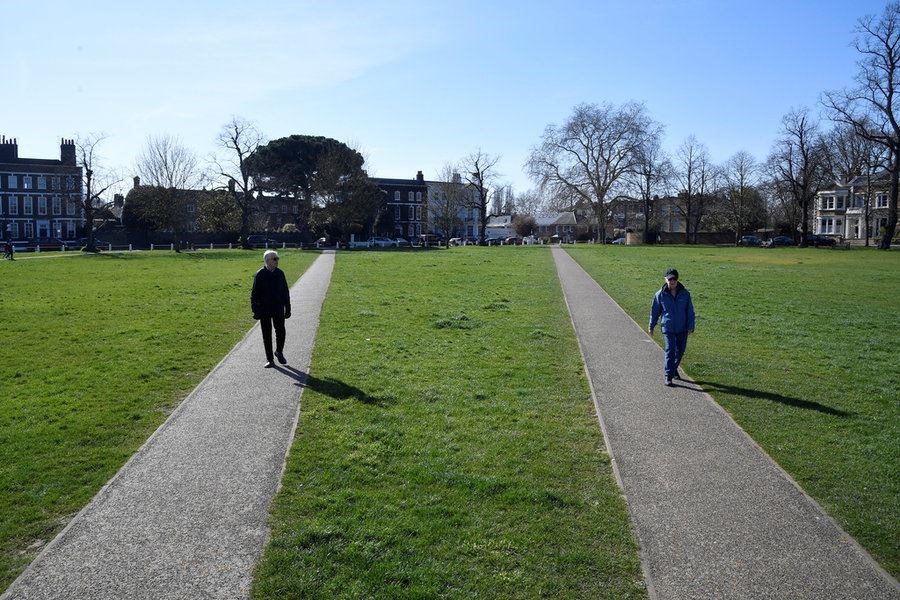REPRINTED WITH PERMISSION FROM THE CHRISTIAN SCIENCE MONITOR
With self-isolation now the rule in Britain, an army of volunteers brings help and companionship to the loneliest.
March 27, 2020 - A curious thing happened in Britain after its government began to take the coronavirus outbreak seriously. Officials asked for volunteers to assist the loneliest people in a nation told to remain isolated indoors for three weeks. They hoped 250,000 people would sign up and, after being given safety training, deliver basic goods and companionship – even if digitally – to an estimated 1.5 million vulnerable people, mainly older people living alone.
 Elderly people walk across the Richmond Green in London, Britain, March 24.Reuters
Elderly people walk across the Richmond Green in London, Britain, March 24.Reuters
Then the curious part happened.
Within 24 hours, more than 500,000 people stepped up to help. The number keeps growing and could reach 1 million. The outpouring of mercy has been dubbed the largest volunteer recruitment drive since World War II.
The battle against loneliness did not stop there. Radio manufacturers are giving free digital radios to older people as a “lifeline” and a “companion,” according to the BBC. At a smaller level, some people are loaning their dogs to those living alone. With such outreach, the narrative of fear and isolation is being shifted to one of neighborliness and community.
For the past few years, Britain has worried about what it sees as an “epidemic” of loneliness. Alarms went off a few years ago when a poll found 200,000 people said they had not spoken to anyone for a year. About 14% of people said they often or always feel lonely. In 2018, the government set up a “ministry for loneliness” to tackle the problem.
Britain is not the only country aware of the problem. In the United States, 61% of adults said they were lonely in a 2020 survey by health insurer Cigna, up from 54% in 2018. In both the U.S. and the United Kingdom, the majority of those who cite their loneliness are under 50 years old.
Britain’s work against its loneliness “epidemic” has now been accelerated by the COVID-19 pandemic. People rarely admit they are lonely. In fact, many people can have plenty of friends and family but still feel apart for an assortment of reasons, such as fear of rejection. Now, in their mental or emotional wilderness, they are being sought out by an army of volunteers and offered moments of genuine caring.
Perhaps in a reflection of Britain’s campaign, the World Health Organization has decided to correct its term for people staying apart during the outbreak. It has dropped “social distancing” and prefers “physical distancing.” The urge to be social – to embrace each other in thought and word if not in person – cannot be denied.
Page created on 3/30/2020 5:30:47 AM
Last edited 3/30/2020 5:37:30 AM
